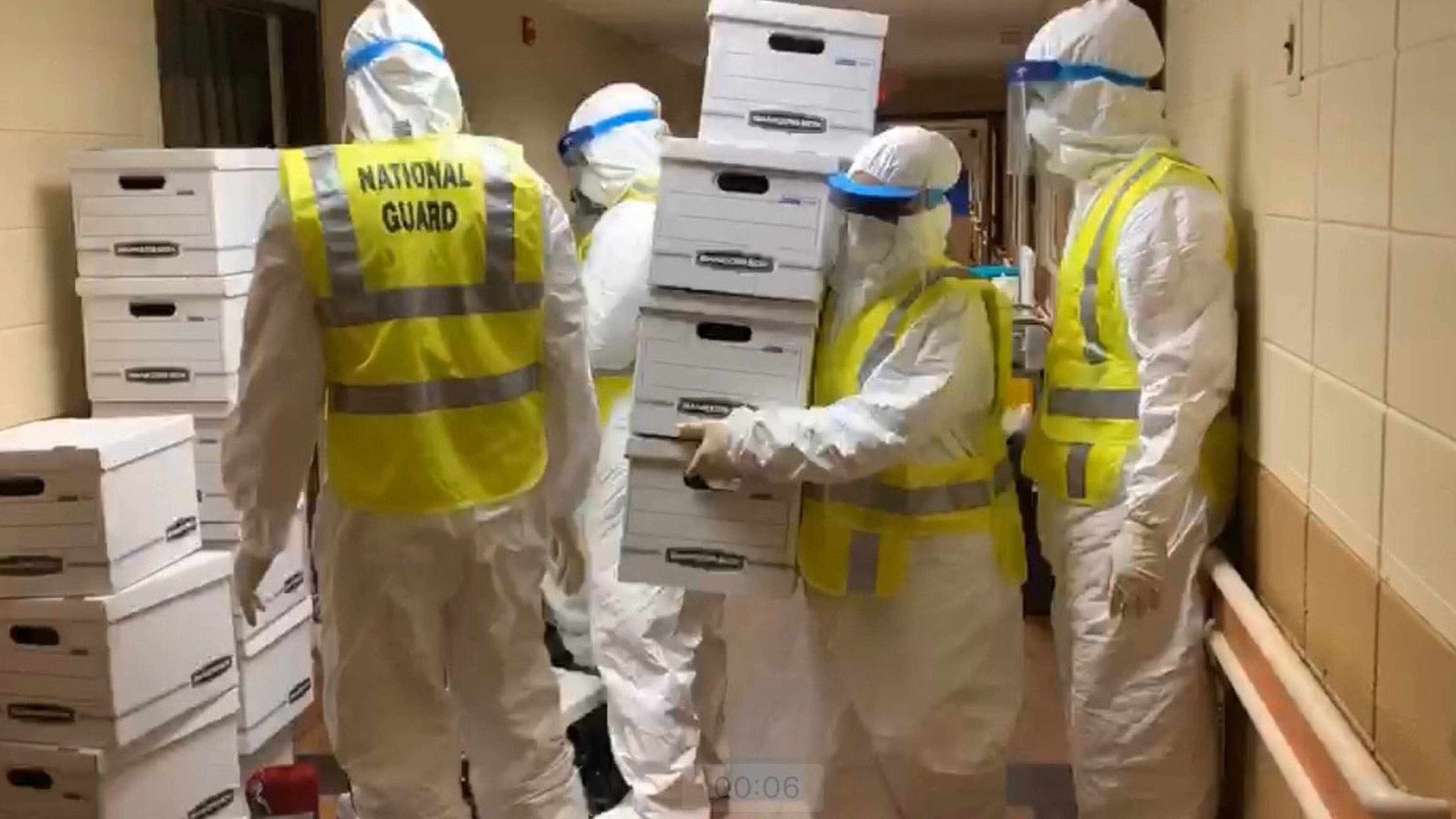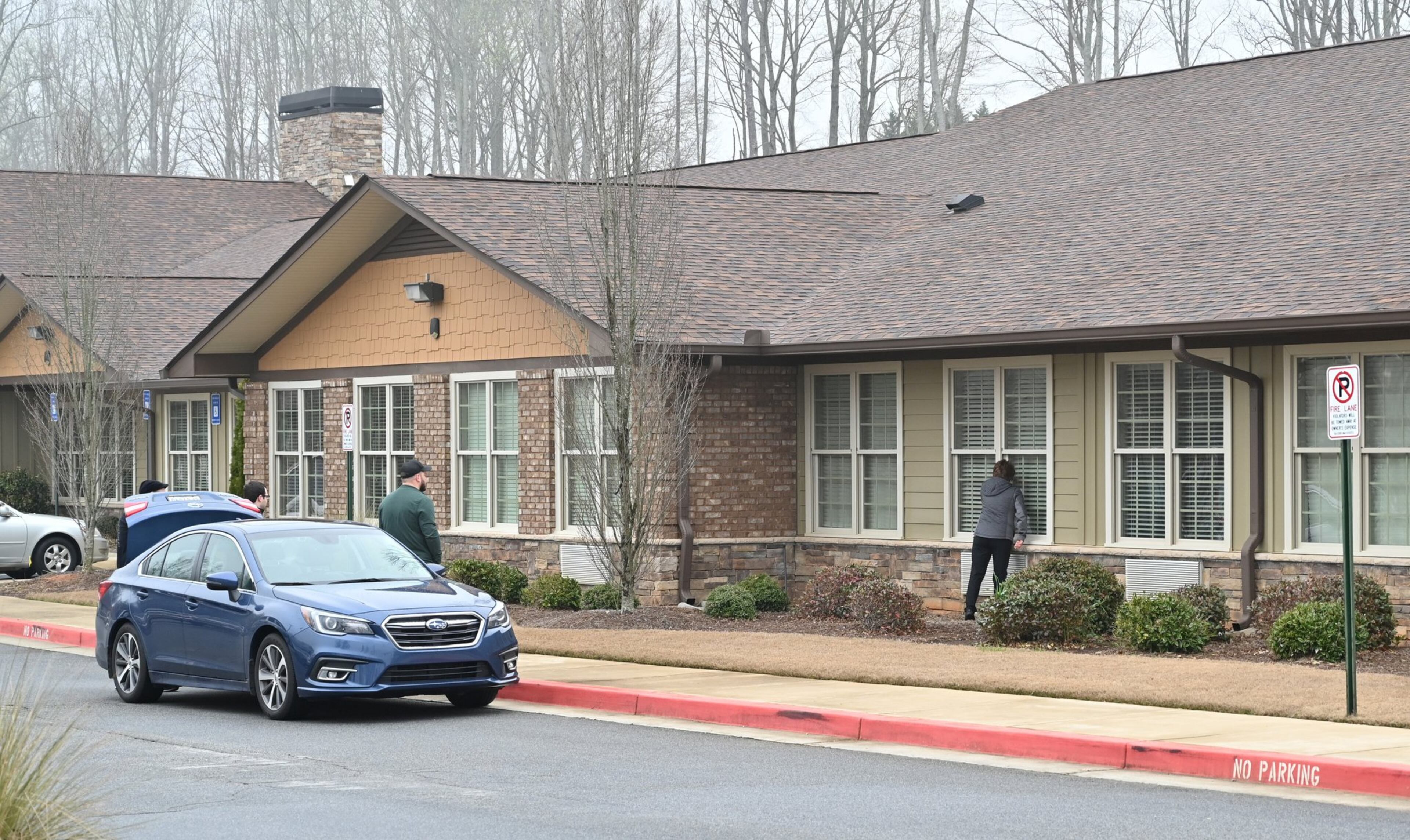State provides first accounting of outbreaks in senior care facilities

Georgia Friday evening made public the names of 47 nursing homes and other senior care facilities that have had coronavirus outbreaks, providing the public with the most complete accounting to date of the virus’s spread in facilities for the elderly since the first reported case became public on March 16.
The list of facilities identified by the Georgia Department of Public Health reflects known outbreaks as of Wednesday afternoon. By Friday afternoon, the total number of senior communities that had residents who tested positive for COVID-19 had climbed to 60, underscoring how rapidly the disease is spreading in facilities that serve thousands of the state’s most vulnerable adults.
» COMPLETE COVERAGE: Coronavirus in Georgia
» MORE: Coronavirus and Georgia hospitals
Cases are hitting long-term residents across the state, with significant outbreaks in facilities from Rome to Albany. But facilities in metro Atlanta’s core counties – Fulton, DeKalb, Cobb and Gwinnett – accounted for half of the facilities statewide with outbreaks. DeKalb topped the charts with nine facilities on the outbreak list.
This list of nursing homes and other senior care facilities identified by the Georgia Department of Public Health reflects known outbreaks of COVID-19 as of Wednesday afternoon, April 1, 2020 and was released the following Friday. The DPH will update this list every Friday.
NOTE: On Monday, DPH issued a correction and removed one facility from its list.
Arbor Terrace At Cascade, Atlanta, Fulton County
Benton House, Woodstock, Cherokee County
Benton House of Grayson, Grayson, Gwinnett County
Berman Commons, Dunwoody, DeKalb County
Budd Terrace, Wesley Woods, Atlanta, DeKalb County
Cambridge Care, Snellville, Gwinnett County
Canterfield of Kennesaw, Kennesaw, Cobb County
Cottage Landing, Carrollton, Carroll County
Dawson Health and Rehab, Dawson, Terrell County
Discovery Village of Sugarloaf, Suwannee, Gwinnett County
Douglasville Nursing and Rehab, Douglasville, Douglas County
Fellowship Home, Valdosta, Brooks County
Gardens of Fayetteville, Fayetteville, Fayettte County
Glancy Rehab-Northside Gwinnett, Duluth, Gwinnett County
Greenwood Place, Marietta, Cobb County
Heartis Fayetteville, Fayetteville, Fayette County
King's Bridge Retirement Center, Atlanta, DeKalb County
LaGrange Nursing & Rehab, LaGrange, Troup County
Legacy Ridge At Neese Road, Woodstock, Cherokee County
Lenbrook, Atlanta, Fulton County
Mann House Assisted Living, Cumming, Forsyth County
ManorCare Rehab Center, Decatur, DeKalb County
Maple Ridge, Cartersville, Bartow County
Marietta Life Center, Marietta, Cobb County
Miller County Nursing Home, Colquitt, Wayne County
Oaks at Towne Lake, Woodstock, Cherokee County
Orchard at Brookhaven, Brookhaven, DeKalb County
Park Springs, Stone Mountain, DeKalb County
Parkside Acute and Rehab, Snellville, Gwinnett County
Pelham Parkway, Pelham, Mitchell County
Pine Knoll, Carrollton, Carroll County
Powder Springs Transitional Care and Rehab, Powder Springs, Cobb County
Pruitt Health Crestwood, Valdosta, Lowndes County
Pruitt Health Eastside, Macon, Bibb County
Pruitt Health Grandview, Athens, Clarke County
Pruitt Health of Brookhaven, Atlanta, DeKalb County
Pruitt Health Palmyra, Albany, Dougherty County
Retreat at Canton, Canton, Cherokee County
Riverdale, Riverdale, Clayton County
Rome Health & Rehab, Rome, Floyd County
Rosemont at Stone Mountain, Stone Mountain, DeKalb County
Sadie Mays Health & Rehab, Atlanta, Fulton County
Sandy Springs Health & Rehab, Sandy Springs, DeKalb County
Signature Healthcare, Marietta, Cobb County
Townsend Park, Cartersville, Bartow County
Zebulon Park Health and Rehab, Macon, Bibb County
The DPH's reporting does not contain information about how many residents at each facility were infected. Some facilities have reported that information publicly.
The first reported case of COVID-19 in a long-term care facility for the elderly came on March 16.
The release did not contain information about how many residents at each facility were infected. Some facilities have reported that information publicly. Rome Health and Rehabilitation said it has 15 infected residents. Pelham Parkway Nursing Home reported 19 residents have tested positive, with test results pending on 29 others. The facility with the largest known outbreak is PruittHealth-Palmyra in Albany, which reported 35 cases as of Wednesday with 38 results pending. Seven of its patients died from the virus.
The outbreaks have become so dire that Gov. Brian Kemp ordered the Georgia National Guard to deploy 100 members to be ready to assist facilities where there are outbreaks.
The state’s release follows the federal government’s noting on Thursday that nursing homes “have become an accelerator” for the virus. In warning of the risk, the Centers for Medicare & Medicaid and the CDC offered additional guidance to help homes fight the spread of the disease. The guidelines include a call for nursing homes to screen all staff, residents and visitors with temperature checks and to ensure that all staff are using appropriate personal protective equipment to help prevent the infection from spreading.
» RELATED: Coronavirus cases now reported at 58 Georgia senior care facilities
» MORE: Amid virus threat, families restricted from visiting senior care homes
To try to contain the virus, A.G. Rhodes’ Wesley Woods location near Emory University set up a designated area of its building for residents showing possible symptoms. As of Friday, the home, among the few nonprofit nursing homes in Georgia, had five residents and two staff members infected.
“As soon as residents displayed symptoms, we either moved them to the designated area to be isolated, or we sent them immediately to the hospital based on the severity of their systems,” said spokeswoman Mary Olsen Newton.
The home is keeping family members updated by posting its numbers and updates on its website daily.
» RELATED: Coronavirus exposes gaps in infection controls in senior care homes
» MORE: Types of risk for residents at long term care facilities
While the federal guidance involves nursing homes, the state's list underscores the risk to other types of senior care facilities as well. On the list are 26 nursing homes, 16 assisted living communities, four personal care homes and one adult day center, according to information the Department of Community Health released.
Senior care facilities face a particularly acute challenge with the coronavirus because they can have hundreds of vulnerable residents living in tight quarters. But identifying infected residents or staff members is difficult because most homes do not have enough tests to assess everyone, and a recent CDC study found that approximately one in four who have the virus may not know it or exhibit symptoms.

One home in northeast Georgia made that unsettling finding after learning that a single resident had the virus. Because the home had a connection to a hospital, it was able to test all its residents, said Tony Marshall, president/CEO of the Georgia Health Care Association, which represents 90 percent of the state’s nursing homes and dozens of assisted living facilities.
Results this week showed that six of the seven residents who tested positive did not exhibit symptoms, Marshall said.
“That’s why testing is so important,” Marshall said. “Testing has the capability of helping us with our other issues.”
Adding to the challenges, the long-term-care industry has been hit hard by the nationwide shortage of masks, gowns and other protective equipment to help prevent the spread of the virus. Marshall said that some nursing facilities in Georgia are down to days of supplies left before they run out.
» MORE: The 'Unprotected' investigative series on senior care facilities
» SEARCHABLE DATABASE: Details on every senior care facility studied by the AJC
Genia Ryan, president and CEO of Georgia Senior Living Association, said communities aren’t yet in crisis with supplies but are conserving since their vendors are back-ordered. “Apparently the federal stockpile is going to priority locations so it doesn’t appear to be an option at this time,” Ryan said.
The Department of Public Health said it will begin releasing updated lists of affected facilities each Friday, and health officials and leaders in the long-term care industry expect the list to continue to grow.
“As time goes on, I wouldn’t be surprised if the majority of the long-term care communities have experience with COVID-19,” said State Rep. John LaHood, R-Valdosta, who heads a family-owned senior care company that operates five assisted living communities.
LaHood said that as of Wednesday he had two positive cases among his residents, but both are stable, including one who is 88 years old. That happened in spite of visitor restrictions and screening every employee at the start of each shift, but he said the reality that COVID-19 can be spread by people without symptoms is challenging.
“It’s a silent enemy that we’re dealing with, an invisible enemy,” he said.




